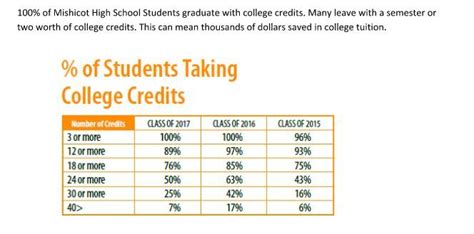Starting college with 30 credits can give you a head start on your academic journey. But is it the right move for you? Here’s what you need to know to make an informed decision.

Benefits of Starting College with 30 Credits
There are several potential benefits to starting college with 30 credits, including:
- Accelerated graduation: You can potentially graduate sooner by completing the required coursework more quickly.
- Reduced tuition costs: If you take college-level courses while in high school through dual enrollment or Advanced Placement (AP) programs, you can earn college credit without paying tuition.
- More flexibility: Having extra credits can give you more flexibility in your course selection and schedule.
- Improved academic performance: Students who start college with more credits tend to have higher GPAs and graduation rates.
Considerations
While there are clear potential benefits to entering college with 30 credits, there are also some considerations to keep in mind.
- Extra workload: Taking college-level courses while in high school can add to your workload and stress levels.
- Limited course selection: The availability of dual enrollment and AP courses may vary depending on your school and district.
- Social adjustment: You may miss out on the traditional college experience of living on campus and participating in extracurricular activities.
Common Mistakes to Avoid
If you’re considering starting college with 30 credits, it’s important to avoid common mistakes such as:
- Taking too many courses: It’s better to take a manageable number of courses and do well in them than to overload yourself and risk burnout.
- Not preparing adequately: Make sure you’re prepared for the rigors of college-level coursework by taking challenging courses in high school.
- Ignoring your social life: It’s important to balance your academic and social life. Make time for activities that you enjoy to help reduce stress and maintain your well-being.
FAQs
Q: How many credits do I need to graduate from college?
A: The number of credits required to graduate from college varies depending on the institution. Most bachelor’s degrees require between 120 and 130 credits.
Q: Can I start college with more than 30 credits?
A: Yes, some colleges allow students to start with more than 30 credits. However, it’s important to check with the specific institution you’re applying to.
Q: What are the best ways to earn college credit in high school?
A: The best ways to earn college credit in high school include taking dual enrollment courses, participating in AP programs, or taking online courses through reputable institutions.
Q: Is it better to start college with 30 credits or take more time to complete my degree?
A: The decision of whether to start college with 30 credits or take more time to complete your degree depends on your individual circumstances and goals. Consider your workload, social life, and financial resources when making this decision.
